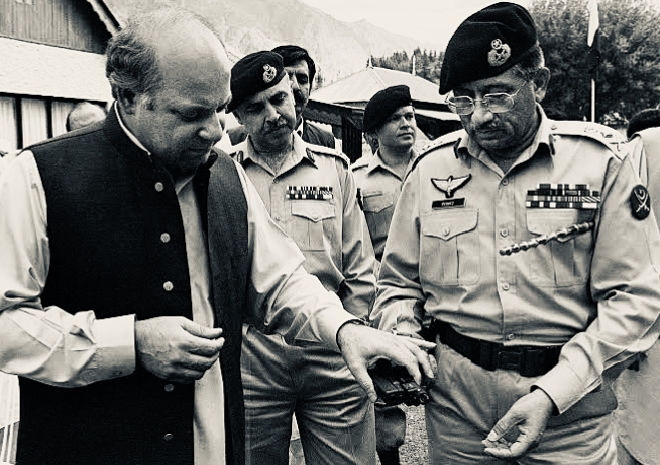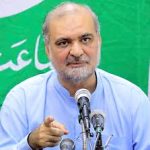26 years ago today, on October 12, 1999, Pakistan’s history took a new turn when the then Army Chief General Pervez Musharraf overthrew the government of elected Prime Minister Nawaz Sharif and seized power.
After the Kargil War, tensions arose between Nawaz Sharif and General Musharraf, which reached a dangerous point when Nawaz Sharif dismissed Musharraf on his return from a visit to Sri Lanka.
As a result of this decision, senior army officers, including General Aziz Ahmed, General Mahmood, Major General Shahid Aziz, General Ehsan-ul-Haq and Corps Commander Karachi Muzaffar Usmani, mobilized against the Nawaz Sharif government and handed over power to Musharraf.
After assuming power, General Pervez Musharraf made himself Chief Executive, later President and Army Chief and ruled the country for about 9 years. Initially, his actions faced opposition at the international level, but after 9/11, he became a close ally of the Western world.
During Musharraf’s rule, both Benazir Bhutto and Nawaz Sharif were out of the country, and he tried to give a democratic color to his dictatorship by holding elections. The Supreme Court and Parliament also ratified his October 12 measures.
However, the imposition of another emergency on November 3, 2007, proved to be the beginning of the decline of Musharraf’s power. He was finally forced to resign on August 18, 2008.
He was tried and convicted by a special court in connection with the 2007 emergency, but he did not go to jail. He died in exile and was buried with full state honors in Karachi.
Even today, the military officers who played a role in the overthrow of the Nawaz Sharif government in 1999 are still alive, but history still asks questions about them.




